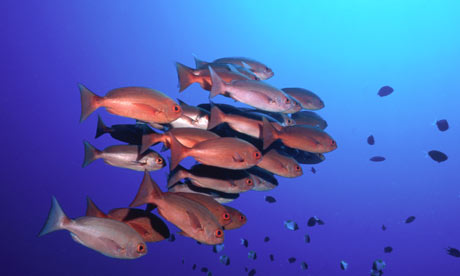
Rupert Brooke was still an apprentice poet in 1915 when he died, aged 28, of blood poisoning, having never seen the military action he had romanticised in the five sonnets that culminate in The Soldier. He had worked devotedly to perfect his writing since his schooldays, but the various strands of his talent were never brought together, and his self-dramatising tendencies remained like a lingering adolescence. He was an above-average Edwardian poet who might have travelled farther towards modernism had he lived, though it's perhaps more likely that he would have turned to the novel.
His prosodic instincts are conventional, but his imaginative world is richer than the anthology favourites suggest. More than once he risked unglamorous and even grotesque poetic subjects (A Channel Passage describes seasickness, for example), and he might have made an excellent war poet, instead of a vacuously patriotic one, had he written not from the position of innocence but from experience. In this week's poem, Heaven, he shows a rather nice line in succinct, neo-Augustan satire. Some corner of English poetry will be, forever, The Soldier – but Heaven is a more deserving and original candidate for immortality.
There's also an earlier poem about fish (called, simply, Fish), suggesting that Brooke had a real affinity with these creatures. Fish becomes overblown when metaphor swamps observation and the fish turns into a strange symbol of oceanic youthful ecstasy ("You know the sigh, the song of love!" etc), but it contains some good if unpolished writing: "In a cool curving world he lies/ and ripples with dark ecstasies./ The kind luxurious lapse and steal/ shapes (sic) all his universe to feel/ And know and be; the clinging stream/ Closes his memory, glooms his dream …" The fish, perfectly at one with his curving world, "fades to some dank sufficient heaven" – and perhaps this is where the idea for the later poem begins.
In Heaven, the imagination-loaded fish has been scaled, scrubbed, gutted, and picked to a clean skeleton. The earlier poem furnished the fish-mind with the exquisite sensuous experience of a young poet in love; this poem humanises the fish-mind so as to mock pious silliness. It couldn't accurately be called a revision, because it's a completely different poem. However, the earlier poem surely laid the foundation of Brooke's technical assurance here. There is no struggle: he says what he wants to say wittily and memorably.
In fact, he mocks the literary excesses that he himself too often enjoyed. There are numerous bathetic exclamations and near-oxymoronic phrases such as "paradisal grubs", "unfading moths" and "the worm that never dies," exposing the shoddier rhetorical sides of both piety and poetry. The vocabulary is rich, but simple enough, with the tendency to use fancy verbiage outgrown, or at least wisely channelled. "Squamous" is both exact and unexpected, and beautifully placed in the list of deific adjectives.
The poem about seasickness (and, of course, love), A Channel Passage, ends with the awkwardly comical, even comically awkward, couplet:
"And still the sick ship rolls. It's hard, I tell ye,/ To choose 'twixt love and nausea, heart and belly." Brooke's risky, and badly handled, honesty to experience is a mature virtue in the making. It's a quality worlds away from sentimentality and jingoism, and would have made him into a different and far more considerable writer than the one we remember.
Heaven
Fish (fly-replete, in depth of June,
Dawdling away their wat'ry noon)
Ponder deep wisdom, dark or clear,
Each secret fishy hope or fear.
Fish say, they have their Stream and Pond;
But is there anything Beyond?
This life cannot be All, they swear,
For how unpleasant if it were!
One may not doubt that, somehow, Good
Shall come of Water and of Mud;
And, sure, the reverent eye must see
A Purpose in Liquidity.
We darkly know, by Faith we cry,
The future is not Wholly Dry.
Mud unto mud! – Death eddies near –
Not here the appointed End, not here!
But somewhere, beyond Space and Time,
Is wetter water, slimier slime!
And there (they trust) there swimmeth One
Who swam ere rivers were begun,
Immense, of fishy form and mind,
Squamous, omnipotent and kind;
And under that Almighty Fin,
The littlest fish may enter in.
Oh! Never fly conceals a hook,
Fish say, in the Eternal Brook,
But more than mundane weeds are there,
And mud, celestially fair;
Fat caterpillars drift around,
And Paradisal grubs are found;
Unfading moths, immortal flies,
And the worm that never dies.
And in that Heaven of all their wish,
There shall be no more land, say fish.
(1913)
• The Collected Poems of Rupert Brooke, with an introduction by Gavin Ewart, and including Edward Marsh's valedictory Memoir, were published by Macmillan in 1992.

